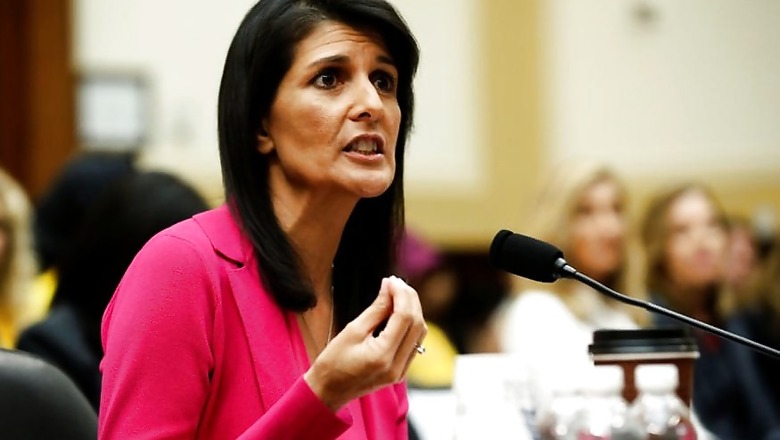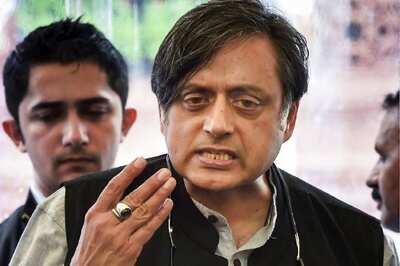
views
India and the US need to acknowledge that they fall sometimes when it comes to human rights, a former American diplomat said on Tuesday, asserting that the two countries can challenge each other to continue to do better on this front.
Former US Ambassador to the UN NikKi Haley made those remarks at the third India-US Leadership Summit organised virtually by the US India Strategic and Partnership Forum (USISPF.
“I think that the US and India both have to acknowledge that sometimes we fall when it comes to human rights and there are things that we can do better. And I think we can both challenging each other to continue to be better on those fronts. But I think we do acknowledge rule of law,” said Haley.
The one thing that sets the US and India apart is that democratic countries, by nature, value life, value human rights and value the status of people in the world, trying to lift them up, she said, responding to a question from MasterCard CEO Ajay Banga.
She quickly referred to the undemocratic countries – authoritarian or dictatorships that have been putting people in prisons, Muslim Uyghurs imprisoned in concentration camps and arrest of large number of peaceful protestors in Hong Kong or the arrest of LGBT community in Iran. “That’s where US and India shine is that we do talk about the value of human rights. And we do acknowledge that when you are a country that believes in rule of law, and when you’re a country that believes the human rights, it makes you a stronger country around the world more respected and stronger in the way that we work,” Haley said.
“The United States has always had a very loud voice when it comes to human rights, and we would actually welcome India to be even louder on that in terms of talking about the importance of human rights as it leads to success of any country,” she said. The reason the US has aligned more with India is because Americans see the value of Indian citizens in the United States,” Haley said.
“When you look at the Indian community what makes me so proud is we are the minority that’s highest educated. We are the minority that has the highest per capita income. We’re the minority that’s least dependent on government assistance and the one that makes me so proud we are the minority that is the most philanthropic of any minority in the country, she said. “So, America sees the value of Indians in our country and this plays out multiple ways,” Haley said.
She said that Americans do compare the presence of Chinese and Indian students. “We have Chinese students and we have Indian students. We know that we have to worry about the Chinese students in these Confucius Institutes because we know they’re taking information back to their governments and using it in a negative way. When we see Indian students, we don’t feel that way. We know that this is talent that is coming into the country. We know it’s not going to be used for harm, it is going to be used to continue to build whether it’s here in America or India and have a relationship,” she said.
“So we see those ways of doing that and I think that that makes a big difference in how we go forward. There has been a trust level. I think that there is a level where we have seen real results, not just words and talking about what Indians can do for America or what Americans can do for India,” she said. This has been by shared values, shared results and trust along the way, Haley said.
Haley said that President Donald Trump and Prime Minister Narendra Modi have developed a very special working relationship and one of trust. “One of the facts that they are both committed to moving our countries forward and I think that that’s something to be said where you can tell that there’s a lot of confidence there,” she said.
Unlike American businesses in China, they don’t feel the same in India. Americans see Indians as the one with whom they can do business with trust. “I hope that Indians see Americans in that respect because I think we can learn from each other and I think we very much value each other,” she said.
.




















Comments
0 comment